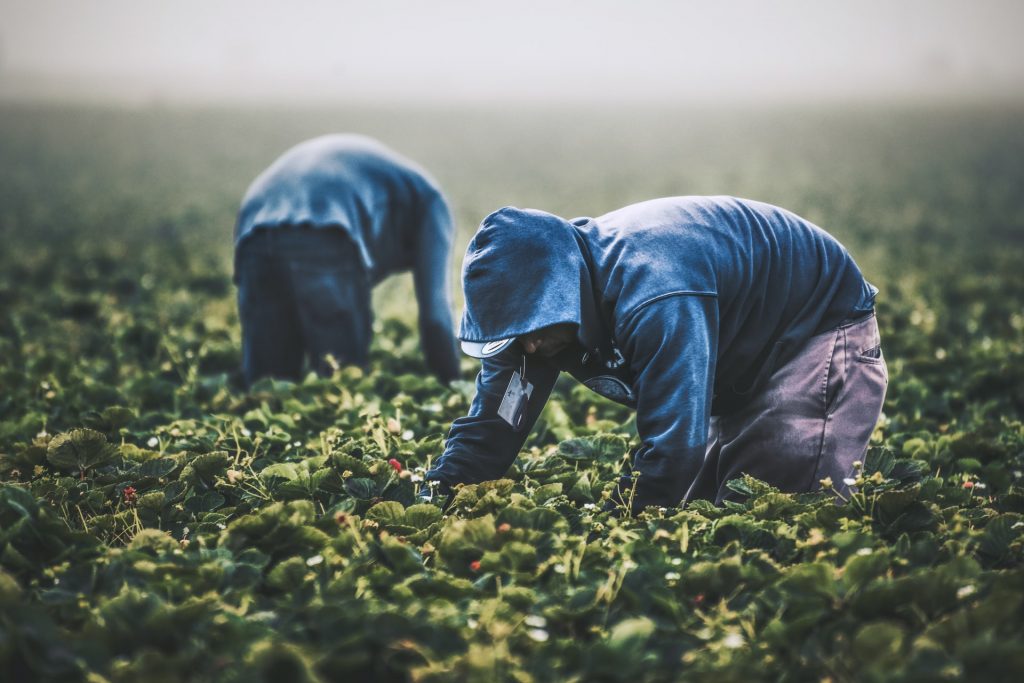 No matter one’s personal opinions on farm work, it’s becoming increasingly recognized that it’s hard, tiring work that comes with a slew of caveats and vague promises. This has been made increasingly clear thanks to a recent study from researchers at Oregon State University, Portland State University, the University of Oregon, Oregon Health and Sciences University, and the California Institute for Rural Studies.
No matter one’s personal opinions on farm work, it’s becoming increasingly recognized that it’s hard, tiring work that comes with a slew of caveats and vague promises. This has been made increasingly clear thanks to a recent study from researchers at Oregon State University, Portland State University, the University of Oregon, Oregon Health and Sciences University, and the California Institute for Rural Studies.
The study in question surveyed 300 farmworkers across Oregon between August and September of 2020 and conducted several in-depth interviews with 48 workers between February and July of 2021.
Throughout the six months between the initial survey and the following interviews, half of the interviewees tested positive for COVID-19, costing them wages during the mandatory 10-day quarantine period.
This forced many farmhands to choose: do they pay for food and rent, or do they pay the exorbitant fees required to provide medical care to their children?
OSU Professor Ron Mize was one of the authors of this study. His work includes a course on farmworker justice movements and is building to a long-term study on working conditions for farmhands across the Pacific Northwest.
“That ten days of quarantine can put you so far behind that you’ll never get back to just the scraping by that you were doing before,” Mize said. “The impacts of the last two years have been cumulative, and they will continue to impact farmworkers.”
And this struggle is something that Mize is finding to be surprisingly unknown by most of his students.
“Over the years that I’ve taught, I still have to remind people that the way food gets to our table is by people’s hands,” Mize said in a recent press release. “It’s hard labor that’s really poorly remunerated that keeps our food prices low, keeps our food plentiful, keeps food on our table; and yet we consistently neglect the reality that farmworkers are fundamental to our food system.”
One of the study’s primary focuses and subsequent challenges was speaking directly with farmworkers.
“The scarce data available about farmworkers too often is disjointed and not collected with the intention of capturing farmworkers in all their complexity and their own voices,” said Jennifer Martinez-Medina, study director and a Ph.D. student at PSU. “They are the experts best positioned to describe their lived experiences and the political action required to be treated with dignity.”
And the struggles of farmwork extend farther than those who actively work in the fields – it’s often the families of farmhands who have to pick up the slack.
With school going remote, farm families had to adapt like the rest of the world, but their situation was often much more complicated than the average Joe’s.
Families were forced to switch childcare situations, adopt a second breadwinner, and deal with the emotional stress and burnout so common in farmwork. And once undocumented workers are factored into the equation, the situation worsens.
Farmhands are forced to worry daily about whether SNAP benefits and free medical care in the form of COVID-19 tests and vaccines will still be there the next day. The addition of the language barriers so common on farms further complicates the picture, making it difficult for many farmhands to advocate for their own worth and needs.
Among the many complaints documented in the study are allegations of Occupational Safety and Health Administration (OSHA) inspectors blatantly ignoring health and safety violations, such as workers in close proximity without facial coverings.
“Too often, the standards for what’s OK for farmworkers are different from what’s OK for everybody else,” Mize said. “OSHA can be held responsible, farms can be held responsible, and we as a collective public can be held responsible.”
The report concluded with a list of recommendations from both workers and researchers, including:
- A desire from farmhands to see more regular safety and health inspections
- More effort to increase vaccination numbers amongst farm workers
- Better provisions for various Indigenous communities’ needs
- Immigration documents so that workers can actually receive benefits
Researchers also called for better training, more robust support for mental health issues, a more wide-reaching safety net with more resources for farmhands, and stronger protections and enforcement in the workplace, along with several more.
“There is no one silver bullet. All these elements have to be addressed together,” Mize said. “I’m hoping our legislative leaders follow that lead, because we can have much more impact on policy when we’re thinking of farmworkers holistically with their whole life, instead of thinking about them as an OSHA inspection or an exposure rate.”
By Ethan Hauck
Do you have a story for The Advocate? Email editor@corvallisadvocate.com


